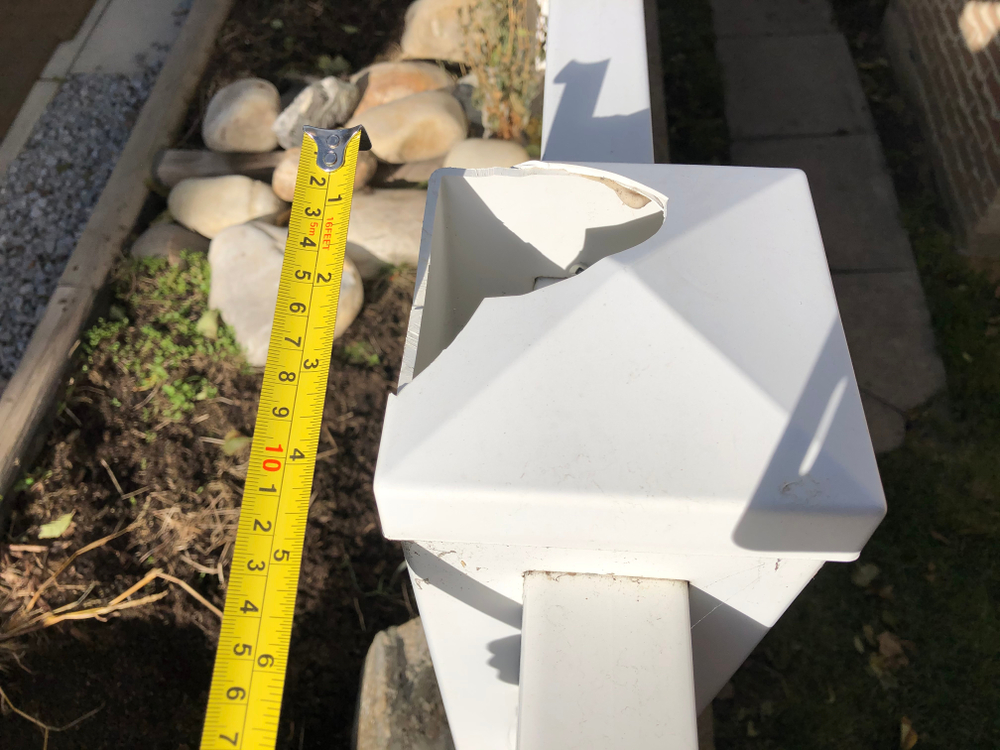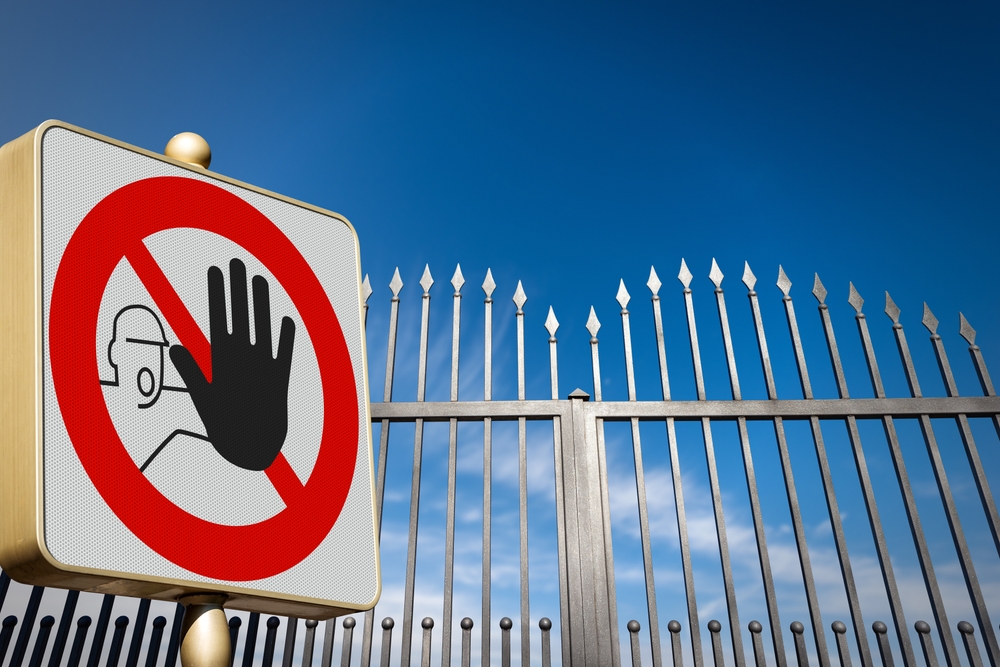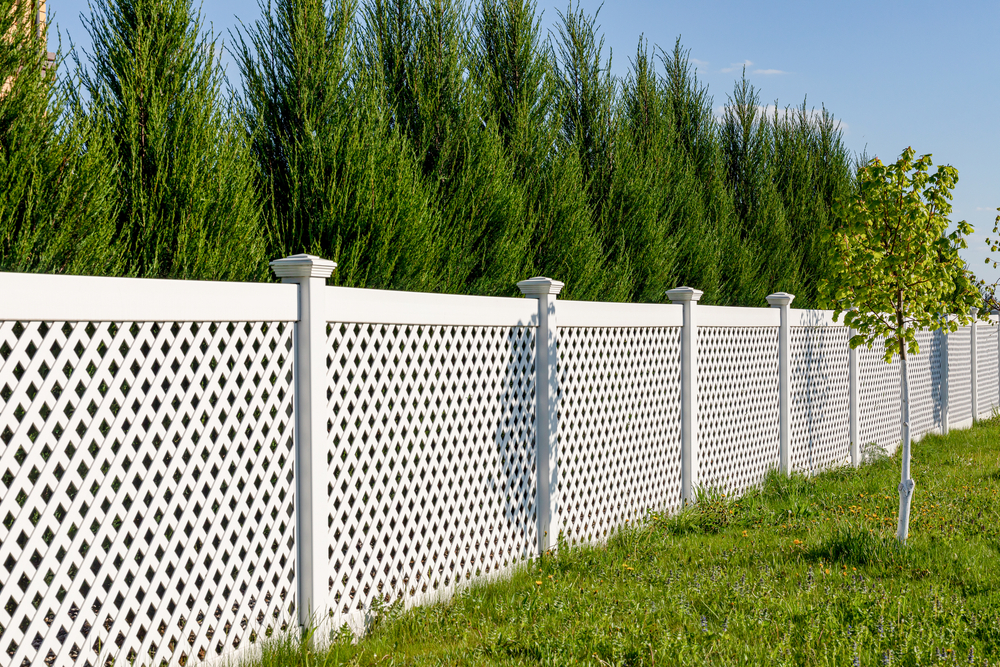Holes in a vinyl fence can occur for various reasons, and it’s essential to identify the cause to address the issue properly. Here are some common causes of holes in vinyl fences:
- Impacts and Accidents: One of the most common causes of holes in vinyl fences is accidental impacts. This can happen if a heavy object, vehicle, lawnmower, or other equipment comes into contact with the fence, leading to cracks or holes.
- Weather-Related Damage: Severe weather events, such as strong winds, hailstorms, or falling tree limbs, can cause damage to a vinyl fence. High-velocity winds can exert significant force on the fence, potentially leading to cracks or holes.
- Age and Wear: Over time, the vinyl material of a fence can become brittle or weakened due to exposure to UV rays and weather conditions. This can make the fence more susceptible to cracking and developing holes.
- Improper Installation: If a vinyl fence is not installed correctly, it may not have proper support or spacing between posts. This can lead to sagging or structural issues that result in holes or gaps in the fence.
- Ground Movement: Soil settling, ground shifting, or frost heave can affect the stability of fence posts. If the posts shift or become uneven, it can put stress on the fence panels, potentially causing holes or gaps to form.
- Plant Growth: The growth of trees, vines, or other plants near the fence can exert pressure on the vinyl material over time. This pressure can lead to damage, including holes or cracks.
- Insect Infestation: In some cases, certain types of insects or pests can burrow into the vinyl material, causing holes. This is less common but can occur in specific situations.
- Poor Quality Materials: Lower-quality vinyl materials may be more prone to developing holes or cracks than high-quality, durable vinyl.
To address holes in a vinyl fence, consider the cause of the damage:
- For minor holes or cracks, you may be able to repair them with vinyl patch kits, which are available from fence manufacturers or suppliers.
- If the damage is extensive or due to structural issues, you may need to replace the affected fence panels or posts.
- Prevent future damage by ensuring proper installation, conducting regular inspections, and trimming plant growth near the fence.
- In the case of severe weather damage, it may be covered by insurance, so consult your insurance provider if applicable.
Assess the extent of the damage and consult with a professional or fence manufacturer for guidance on the best course of action to repair or replace the affected areas of your vinyl fence.




